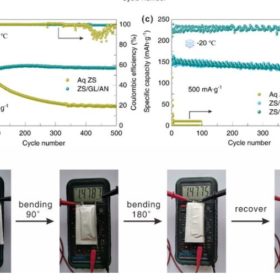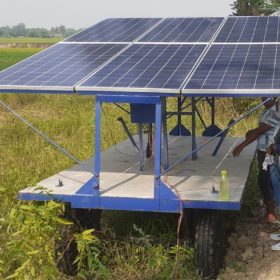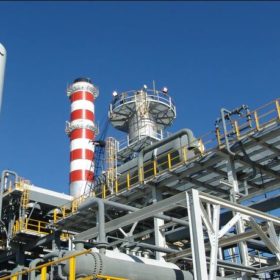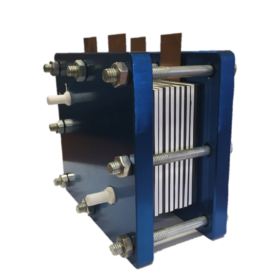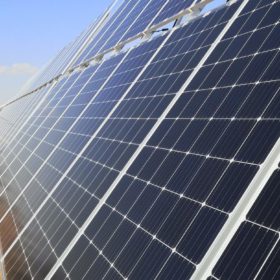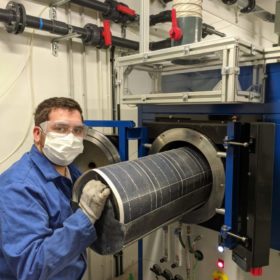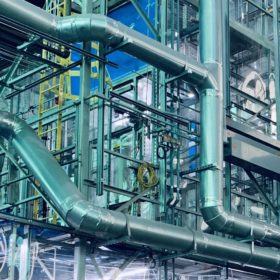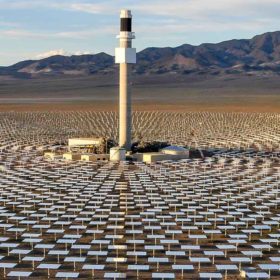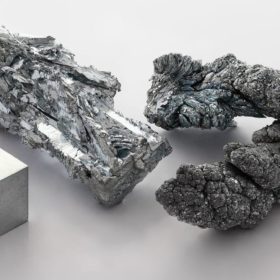Aqueous zinc-ion battery with cycling stability of over 3,000 cycles
Conceived by scientists in China, the battery was built with a special hydrogel electrolyte made of polyacrylamide (PAM), zinc sulfate (ZnSO4), glycerol (GL), and acetonitrile (AN). The device showed high cycling stability of over 3,000 cycles, a high reversibility thanks to a Coulombic efficiency of up to 99.5%, and electrochemical performance of 185 mAh·g over 10,000 cycles.
Mobile solar pump for remote areas
Researchers at the Indian Institute of Technology Bhubaneswar have developed a solar power system that can be easily moved between farms to pump water for irrigation. The kit comprises solar panels and an inverter to power a surface-mounted pump.
Australian duo make shortlist for 600MW NZ green hydrogen project
Two of Australia’s most prominent energy players, Fortescue Future Industries and oil and gas giant Woodside Energy have been included on a shortlist of potential development partners for a proposed 600MW green hydrogen production and export facility planned for New Zealand’s South Island.
Viologen redox flow battery for renewables storage
Conceived for the storage of residential and large scale renewable energy, the device has a rated power of over 150mW/cm2, an energy density exceeding 40Wh/L, and a power density of 72.5mW/cm2. The battery was built with an anode made of inexpensive viologen and its cost, according to its creators, may be lower than US$100/kWh (AU$140).
TOPCon vs PERC – a battle between fast learning curves
TOPCon solar modules will gain more market share if their average efficiency, already higher than that of PERC panels, continues to improve, according to Stefan Glunz, PV research chief at Germany’s Fraunhofer Institute for Solar Energy Systems ISE. In an upcoming pv magazine webinar on the potential of TOPCon tech, Glunz will show how to reduce costs and increase efficiency.
New PV module recycling tech
French start-up Rosi Solar has developed an industrial solution claimed to be capable of recovering high purity silicon, silver and copper contained in end-of-life PV modules. The company’s technology is based on a pyrolysis process that makes it possible to isolate the different metals from the cells.
Water-based electrolyser for green hydrogen production
U.S. company Verdagy has secured a US$25 million (AU$35 million) investment for its new electrolyser technology, which provides hydrogen fuel for heavy industrial applications. The membrane-based technology uses large active area cells, high current densities, and broad operating ranges to deliver hydrogen at scale.
Major marine survey launched for proposed $3.5 billion transmission project
The proposed 1.5 GW Marinus Link transmission project, which would link Tasmania and the Australian mainland via an undersea electricity interconnector, has reached another milestone with the launch of a new engineering survey which aims to identify the most suitable corridor for the cables.
Next-gen concentrated solar power now under development in US
In new studies led by researchers from the National Renewable Energy Laboratory, the US Department of Energy pursues an energy cost goal of US$0.05 per kilowatt-hour.
Zinc batteries: Old technology brings new values
In battery storage, there is no silver bullet chemistry type and as we move towards more ambitious decarbonization goals, room is being made for diverse systems. As an old technology with new vitality, zinc-based batteries are edging closer to commercialization, leveraging their unique ability to be configured for short and long duration operation. They are safer, longer lasting and, in some cases, reportedly up to 50% cheaper than lithium-ion batteries and, following recent game-changing advances, the prospects for zinc look much more exciting. pv magazine sat down with the manager of the newly established, global Zinc Battery Initiative, Josef Daniel-Ivad, to discuss the technology’s market position and developments.
